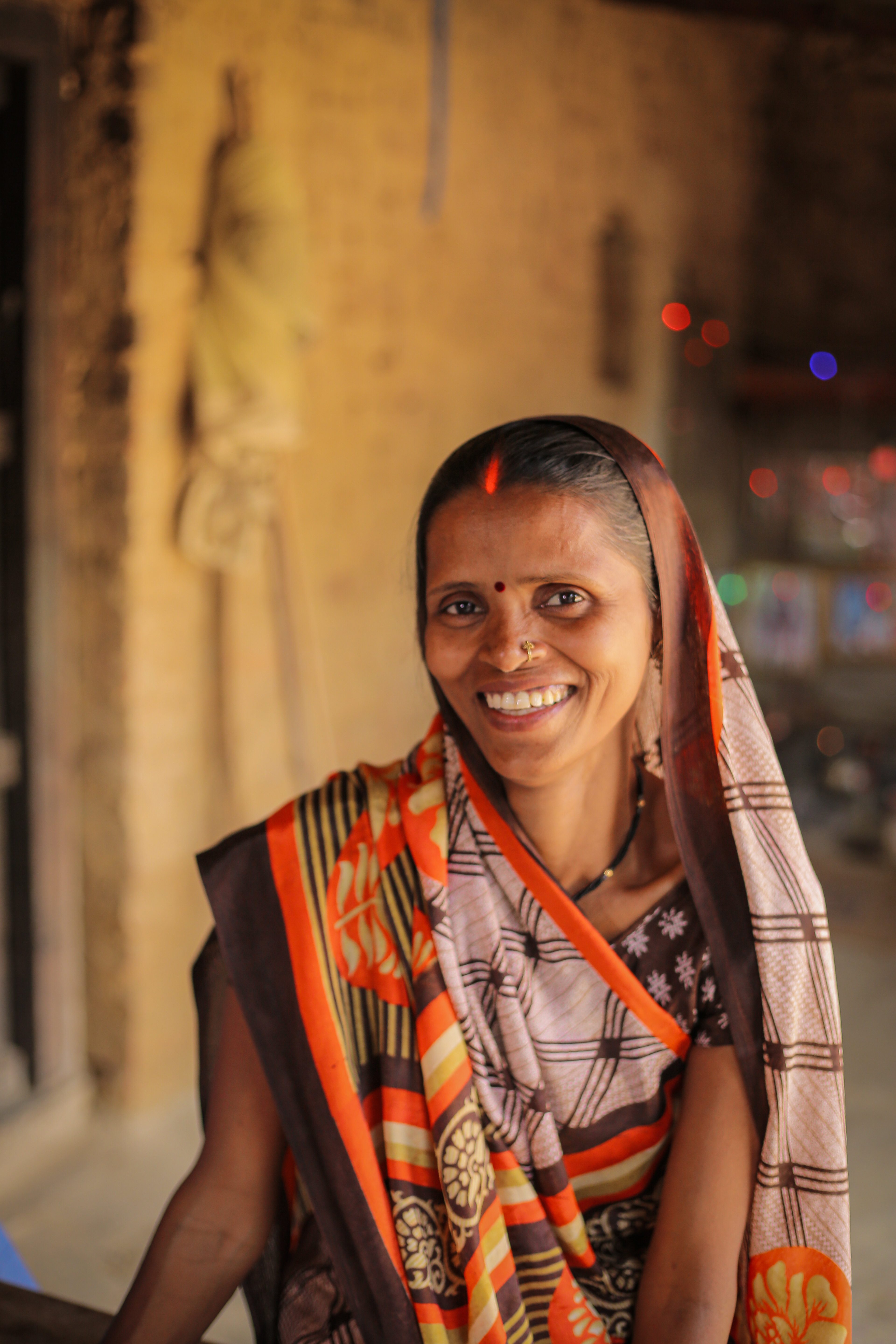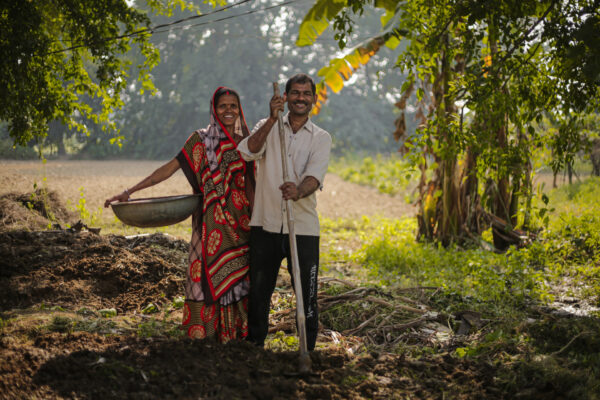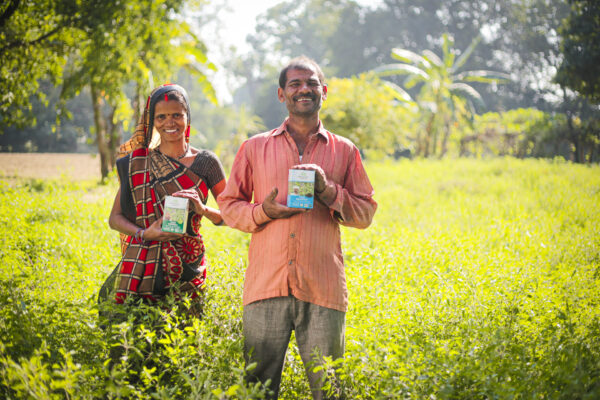In India, the Fairtrade Farmer, Ms. Ranjana Maurya found herself at the forefront of a transformative initiative, ‘Anemia Mukt Gaon’ led by the teams of Organic India Foundation and supported by Organic India Farmer Producer Company Limited. Together, they embarked on a mission to combat anemia which is a prevalent public health crisis among India’s most vulnerable populations. The programme is an seeks collaboration with the Anaemia Mukt Bharat (AMB) programme run by the Government of India. Today, Fairtrade is proud to join hands with this organization.
Today, there is a prevalence of iron deficiency anemia is the major cause of morbidity and mortality among children and women. Almost 50% of pregnant women, 59% children under 5 years of age and 53% of non-pregnant and non-lactating women of India is anemic. Hence, this project was implemented with a strategic approach by focusing on prophylactic management and the T3 strategy – test, treat, and talk. The technical support is provided by UNICEF led platform known as the Impact4Nutrition for invaluable guidance and ensuring the program’s efficacy.
Today, Anemia Mukt Gaon programme is being conducted in two villages of Azamgarh, namely, Haripur and Kamhenpur. Ms. Ranjana Maurya witnessed the firsthand impact of the Anemia Mukt Gaon program in her village. Through educational workshops and community meetings, she and her fellow beneficiaries learned about health, hygiene, nutrition, ante- and post-natal care. The initiative not only aimed to elevate Hb levels but also instilled knowledge that would resonate for generations to come. With concerted efforts following the Test-Treat-Talk approach, the pilot phase saw remarkable progress with around 30% of women and adolescent girls recovered from anemia. Ms. Ranjana Maurya and her peers were hopeful as they witnessed the tangible improvement in the HB levels among 318 identified beneficiaries. Today, this initiative has helped the 318 benificiaries to improve their Hb level and will soon bring each of them out of anemia.
But the initiative didn’t stop there. Ms. Ranjana Maurya and her community is exploring the possibility of plantation activities of sowing Amla and Moringa saplings in their farms and surroundings. These medicinal and nutrition-rich sources promised not only better health but also improved environmental conditions. As Ms. Ranjana Maurya looked out over the lush landscapes of Azamgarh, she felt a sense of pride knowing that her efforts, alongside those of her community, were making a tangible difference via one sapling, one workshop, and one life at a time. 






